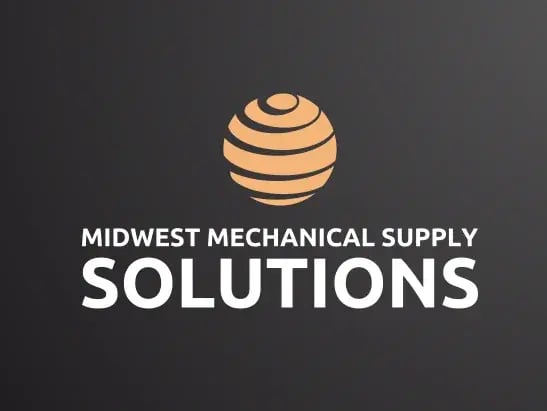From Crisis to Control for a Construction Materials Supplier

Industry
Construction Services
Challenge
Midwest Mechanical Supply Solutions faced liquidity issues, unreliable financial processes, tax errors, and significant management distractions, resulting in cash flow instability, missed opportunities, and an inability to focus on growth.
Results
Teel+Co improved liquidity, rebuilt and maintained the finance function, ensured tax compliance, and introduced automated reporting. By streamlining financial operations, they freed leadership to focus on strategic growth, boosting profitability and operational efficiency.
Key Products & Services
Project Management, Electrical Systems and Components, HVAC Systems and Components, Product Consultation

About the Client
Midwest Mechanical Supply Solutions is a mid-sized distributor specializing in industrial mechanical supplies. Serving a diverse range of clients across manufacturing, construction, and industrial sectors, the company has built a strong reputation for reliability and product expertise. With $15 million in annual revenue, Midwest Mechanical Supply Solutions plays a critical role in its supply chain, ensuring clients receive high-quality materials promptly. Despite its operational success, the company faced significant financial management challenges that hindered its ability to scale and sustain profitability, prompting the engagement of Teel+Co.
The Challenge
Midwest Mechanical Supply Solutions faced a series of interconnected financial and operational challenges that threatened its stability and growth potential. Low liquidity, insufficient working capital, high DSO, and cash flow issues left management scrambling to manage daily operations. Compounding these problems were inconsistent profitability, unreliable financial reporting, and tax errors, all of which distracted leadership from focusing on core business development, leading to significant opportunity costs and underperformance.
These challenges include:
1. Liquidity Crisis and Insufficient Working Capital
- Cash balances were consistently at or near zero, and working capital was insufficient to support additional sales growth.
- Accounts receivable (A/R) was high, with a Days Sales Outstanding (DSO) ranging from 109 to 168 days.
- Accounts payable (A/P) balances were high due to the lack of cash, which prevented timely settlement of vendor invoices.
- Management was unaware they required a minimum USD 500K line of credit to meet working capital needs.
2. Inconsistent Profitability and Cost Mismatching
- Monthly gross profit margins fluctuated significantly, and management was unaware if pricing or costing issues existed or were driving this inconsistency.
- Cost of Goods Sold (COGS) was improperly matched to revenues, with timing differences between client invoicing and vendor purchases, resulting in inaccurate gross profit balances in financial reports.
- Vendor invoices were being paid in advance of collecting the corresponding receivable, further straining cash flow.
3. Accounting Process Failures
- The bookkeeper lacked knowledge of basic accounting standards, resulting in:
- Improper accounting of inventory, which led to inflated expenses in COGS.
- Failure to record accruals and prepaid expenses, contributing to erratic operating expenses (OPEX).
- No discipline in month-end cut-offs, causing historical balances in the general ledger to constantly change.
- Month-end close and regular reporting were not performed, leading to a lack of reliable financial or management reports.
4. Tax Errors and Overpayments
- The tax preparer erroneously advised the company to remit USD 50K in unnecessary tax payments, exacerbating cash flow issues. These funds were only refunded a year later.
-
The tax preparer did not fully understand the ownership structure or business operations, which contributed to ongoing issues. Additionally, they were generally unresponsive to management’s inquiries and unable to provide adequate supporting details for their recommendations.
5. Management Distraction and High Opportunity Costs
- Due to substandard processes and unreliable financial data, management was spending significant time on accounting and financial processes instead of focusing on business development and sales.
- Estimated opportunity cost based on management’s time that could have been spent in business development and sales activities:
- 2 hours/week = USD 390K/year
- 4 hours/week = USD 780K/year
- 8 hours/week = USD 1.56M/year
- The business was underperforming, and owners were not receiving regular cash distributions.
The Solution
Teel+Co began by tackling liquidity challenges, assisting in securing a USD 750K line of credit to stabilize working capital and implementing a strategy that reduced DSO from 168 to 60 days. A new cash flow management system was introduced, prioritizing receivables collection and reporting before vendor payments to better align cash inflows and outflows. To improve financial operations, Teel+Co established structured month-end close procedures, introduced accrual accounting, and implemented a reliable process for matching COGS with revenue, ensuring consistent and accurate profitability reporting. Enhancements to the accounting software enabled automated billing and reporting, while new financial and management reports from the “Teel+Co Reports” platform provided real-time insights into business performance. Teel+Co also revamped the company’s tax processes by eliminating unnecessary prepayments and ensuring proper compliance. By rebuilding and maintaining the finance function, Teel+Co freed up management’s time, allowing leadership to refocus on strategic growth, significantly lowering opportunity costs and restoring profitability.
These solutions include:
1. Liquidity and Working Capital Improvement
Teel+Co began by stabilizing Midwest Mechanical Supply Solutions’ liquidity through the successful acquisition of a USD 750K line of credit, which provided immediate working capital relief. This enabled the company to meet short-term obligations and sustain daily operations without cash flow interruptions. Additionally, Teel+Co implemented a robust A/R collections strategy to expedite cash inflows and reduce DSO, ensuring more predictable revenue cycles. By developing a structured cash flow management process, the company prioritized receivables collection while optimizing the timing of vendor payments, which helped align cash outflows with inflows. These measures collectively enhanced the company’s financial flexibility, supporting growth while restoring trust with vendors and partners.
2. Financial Process Overhaul
Teel+Co identified significant weaknesses in the company’s financial processes and executed a comprehensive overhaul to restore accuracy and consistency. A structured month-end close process was introduced, ensuring accurate financial cut-offs and timely reporting. By implementing accrual accounting, they ensured that expenses and prepaid costs were properly recorded, eliminating erratic fluctuations in monthly OPEX and improving financial predictability. Furthermore, Teel+Co developed a systematic COGS matching process to ensure revenue was aligned with corresponding expenses, resulting in more reliable gross margin reporting. These process improvements created a solid financial foundation, allowing the company to monitor performance accurately and make informed business decisions.
3. Technology and Reporting Enhancements
Recognizing the inefficiencies caused by outdated financial systems, Teel+Co introduced advanced accounting software with automated features for billing, receivables, and payables. This reduced manual effort and improved the accuracy of financial data. To enhance management’s ability to track key metrics, Teel+Co also designed and implemented reliable monthly financial and management reports. These reports, derived from the “Teel+Co Reports” platform, provided real-time insights into cash flow, profitability, and operational performance. By leveraging technology to streamline processes and enhance reporting, the company gained better control over its financial operations and improved decision-making capabilities.
4. Tax Advisory and Compliance
Teel+Co conducted a thorough review of the company’s tax obligations and ownership structure, uncovering errors in previous filings and identifying opportunities to improve compliance. Teel+Co corrected the company’s tax strategy, ensuring accurate filings and eliminating unnecessary tax prepayments that had previously strained cash flow. These corrections resulted in immediate cash flow improvements and reduced the risk of future compliance issues. By establishing proper tax procedures and oversight, Teel+Co helped the company avoid costly errors and penalties while ensuring that management could focus on growth rather than dealing with recurring tax-related problems.
5. Relieving Management Burden
Teel+Co recognized that management was heavily distracted by operational inefficiencies and unreliable financial data, which prevented them from focusing on strategic growth initiatives. To alleviate this burden, Teel+Co rebuilt and maintained the finance function, providing ongoing leadership and support in managing cash flow, financial reporting, and compliance. This enabled the leadership team to redirect their time toward high-value activities such as business development and client acquisition. Teel+Co also offered continuous financial advisory services to support informed decision-making and reduce opportunity costs. By improving financial oversight and streamlining operations, Teel+Co positioned the company for sustained growth and profitability.
The Results
Teel+Co’s strategic interventions transformed Midwest Mechanical Supply Solutions’ financial operations, addressing critical issues in liquidity, reporting, and process efficiency. By stabilizing cash flow, improving financial accuracy, and freeing up management’s time, the company regained control of its operations. These solutions not only enhanced profitability but also positioned the business for long-term growth and operational stability.
Liquidity and Working Capital Improvement
With the $500K line of credit and a new A/R collections strategy, cash flow stabilized, and DSO was reduced from 168 to 60 days. Improved cash flow management enabled timely vendor payments and better working capital availability.
Financial Process Overhaul
Structured month-end close processes and accrual accounting smoothed OPEX fluctuations, while proper COGS matching ensured accurate revenue-expense alignment. These changes brought consistency to financial reporting and gross margin tracking.
Technology and Reporting Enhancements
Automated accounting processes reduced manual errors and increased efficiency. Monthly financial reports provided real-time insights into cash flow and profitability, improving decision-making and operational visibility.
Tax Advisory and Compliance
Teel+Co corrected previous tax errors, eliminated unnecessary prepayments, and ensured accurate filings. This freed up cash and reduced compliance risks, improving financial clarity and future cash management.
Relieving Management Burden
By rebuilding and maintaining the finance function and providing financial oversight, Teel+Co freed management to focus on strategic growth. This reduced opportunity costs and allowed leadership to prioritize high-value initiatives.
Through a tailored approach that combined financial expertise, process improvement, and strategic guidance, Teel+Co enabled Midwest Mechanical Supply Solutions to overcome its financial and operational challenges. By rebuilding and maintaining the finance function, Teel+Co delivered improvements in cash flow, financial reporting, and management focus, creating a solid foundation for sustained growth. With streamlined operations and renewed leadership capacity, the company is now well-equipped to capitalize on new business opportunities and achieve its full revenue potential.
Confidentiality Disclaimer
In presenting this case study, we are committed to upholding the confidentiality and privacy of our clients. To protect their identity and proprietary information, we have altered certain details, including names, locations, and specific financial data. These changes are solely intended to preserve anonymity and do not impact the accuracy or substance of the case study. Our modifications ensure compliance with our confidentiality agreement and safeguard our client’s business interests.

